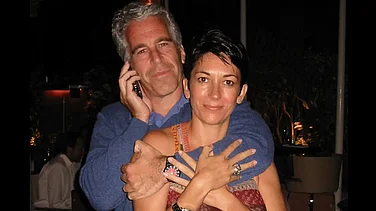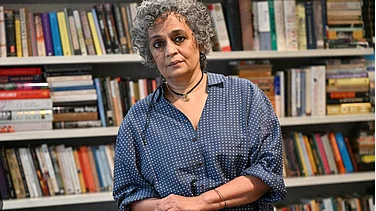A court in military-ruled Myanmar convicted the country’s ousted leader Aung San Suu Kyi of corruption Friday, sentencing her to seven years in prison in the last of a string of criminal cases against her, a legal official said.
The court’s action leaves her with a total of 33 years to serve in prison after a series of politically tinged prosecutions since the army toppled her elected government in February 2021.
The 77-year-old Suu Kyi has also been convicted of several other offences, including illegally importing and possessing walkie-talkies, violating coronavirus restrictions, breaching the country’s official secrets act, sedition and election fraud.
The case that ended Friday involved five offences under the anti-corruption law and followed earlier convictions on seven other corruption counts, each of which was punishable by up to 15 years in prison and a fine.
Earlier convictions of Suu Kyi
Suu Kyi was detained on Feb. 1, 2021, when the military seized power from her elected government. She has denied the allegations against her in this case, in which she was accused of receiving $550,000 as a bribe from a tycoon convicted of drug trafficking. Her previous convictions had landed her with a total of 26 years’ imprisonment.
Corruption cases comprise the biggest share of the many charges the military has brought against the 1991 Nobel Peace laureate. Suu Kyi has been charged with 12 counts in total under the anti-corruption act, with each count punishable by up to 15 years in prison and a fine.
Suu Kyi had already been sentenced to 23 years’ imprisonment after being convicted of illegally importing and possessing walkie-talkies, violating coronavirus restrictions, breaching the country’s official secrets act, sedition, election fraud and five corruption charges.
Suu Kyi received a three-year sentence after being convicted with Australian economist Sean Turnell under the secrets law, said the official, who spoke on condition of anonymity because he is not authorized to release information about the case.
Accepting bribes totalling $600,000 and 11.4 kg of gold bars, she was ordered to serve five years in prison, April 27, 2022.
Misuse of funds from the Daw Khin Kyi Foundation that Suu Kyi chaired, to build a home and lease government-owned land at discounted rate. Ordered to serve six years in prison, Aug. 15, 2022.
In the five counts of corruption decided Friday, Suu Kyi was alleged to have abused her position and caused a loss of state funds by neglecting to follow financial regulations in granting permission to Win Myat Aye, a Cabinet member in her former government, to hire, buy and maintain a helicopter.
Myanmar's military power
Suu Kyi’s supporters and independent analysts say the numerous charges against her and her allies are an attempt to legitimize the military’s seizure of power while eliminating her from politics before an election it has promised for 2023.
Cases against Suu Kyi were manufactured and court verdicts predetermined by the military, Phil Robertson, deputy Asia director of Human Rights Watch, said in an emailed statement to AP.
“Due process and a free and fair trial were never remotely possible under the circumstances of this political persecution against her,” he added.
The end of the court cases against Suu Kyi, at least for now, raises the possibility that she would be allowed outside visitors, which she has been denied since she was detained.
Myanmar’s military rulers, who have faced diplomatic and political sanctions for their human rights abuses and suppression of democracy, have repeatedly denied all requests to meet with her, including from the Association of Southeast Asian Nations, which seeks to help mediate an end to the crisis in Myanmar that some United Nations experts have characterized as a civil war because of the armed opposition to military rule.
An August statement from the military government said that, “depending on the circumstances after the completion of the judiciary process, we will consider how to proceed.”
(with AP inputs)


























